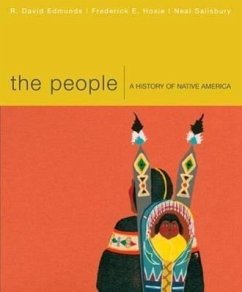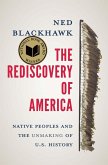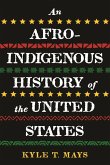This narrative takes an ethnographic approach to American Indian history from the arrival of humans on the American continent to the present day. The text provides balanced coverage of political, economic, cultural and social aspects of Indian history. While conveying the effects of European invasion on American Indian communities, the text gives greater attention to the impact of Native actions on the American environment. The authors' Indian-centered point of view treats Indians as actors in their own right, existing in a larger society. As a result, some events in American history loom larger than they would in a general survey, while others, such as Reconstruction, receive minimal coverage. The People demonstrates that the active participation of American Indians in a modern, democratic society has shaped--and will continue to shape--national life.
Hinweis: Dieser Artikel kann nur an eine deutsche Lieferadresse ausgeliefert werden.
Hinweis: Dieser Artikel kann nur an eine deutsche Lieferadresse ausgeliefert werden.








